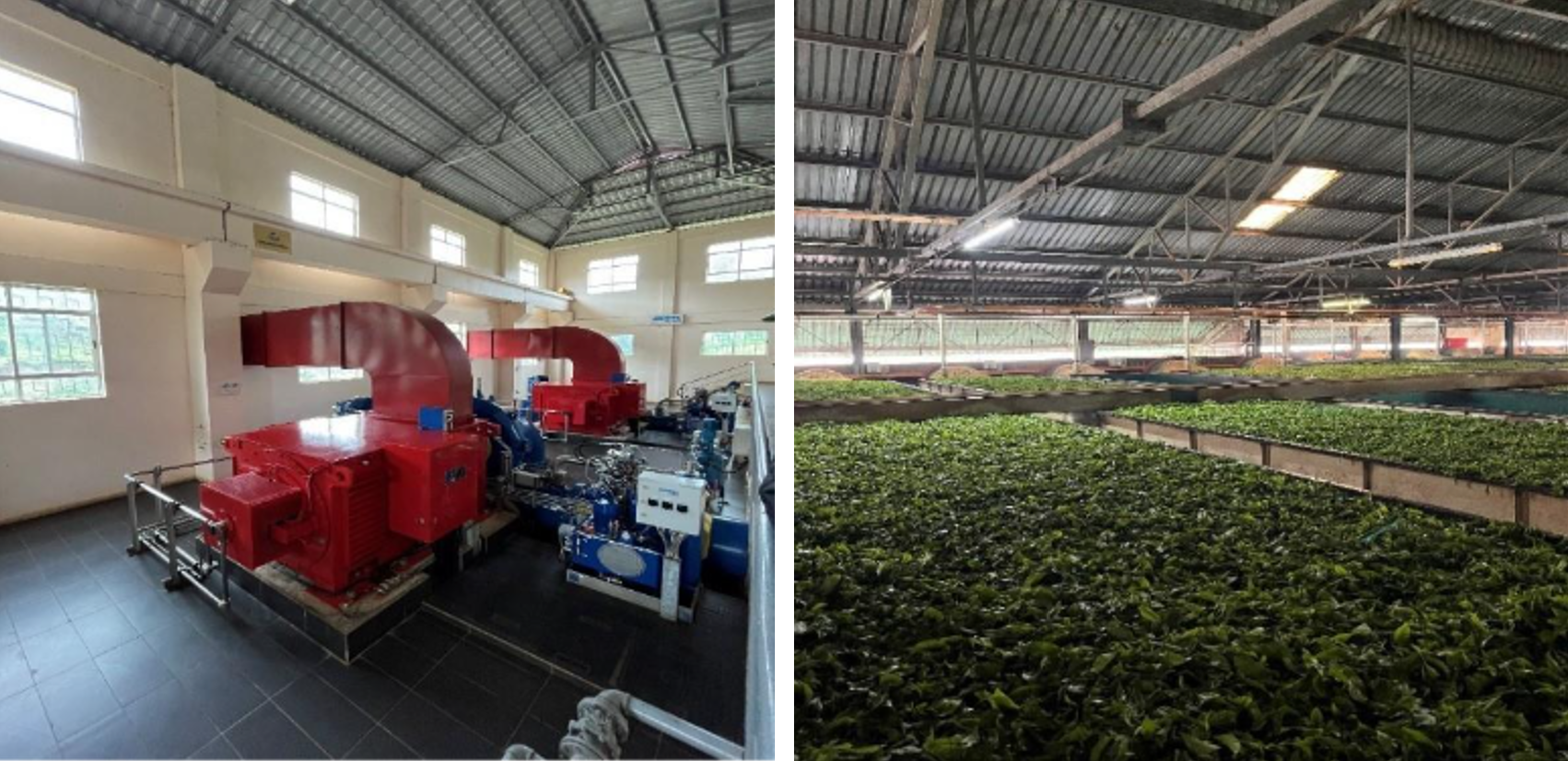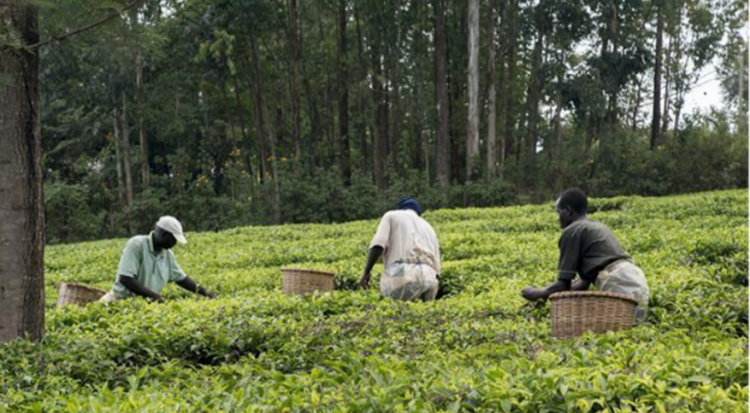Since 2017, the Kenya Tea Development Agency (KTDA), the world’s second-largest exporter of black tea, has been transforming how it powers tea production. Across Central Kenya, KTDA has been rolling out small hydropower plants that use the natural flow of rivers to generate clean electricity. Unlike large dams, these plants work with the river’s flow—reducing the risk of flooding and avoiding major disruptions to farmland and ecosystems. Spread across multiple sites, they help run tea factories, sell surplus power to the national grid, and cut carbon emissions—all while lowering energy costs and reducing reliance on fossil fuels.
KTDA Power Company (KTPC), a subsidiary of KTDA, is leading the effort. Several plants are already operational, backed in part by financing from the International Finance Corporation (IFC). Once the full program is in place, it is expected to deliver clean, affordable electricity to 39 tea factories and boost incomes for more than 350,000 smallholder farmers. Along the way, the project has created jobs in construction, operations, and maintenance—strengthening incomes and supporting local businesses.
Cutting emissions and creating opportunity
From the start, KTDA built carbon finance into its strategy. Carbon revenues were seen as essential to making the projects financially viable and sustainable. The KTDA Small Hydropower Programme of Activities Emission Reduction Crediting project was officially registered in 2012 under the Clean Development Mechanism (CDM) — a UN-Administered framework that allows developing countries to earn carbon credits by reducing emissions — even before the first hydropower plant was built. Today, KTRC leads the emissions reduction program and has strengthened its technical capacity with support from the World Bank’s Carbon Initiative for Development (Ci-Dev). The company is also playing an active role in shaping Kenya’s emerging carbon market.

In a major achievement, KTDA’s Small Hydropower Programme recently secured its first issuance of Certified Emission Reductions (CERs) for clean energy generated between 2017 and 2020. The World Bank provided an initial $350,000 payment for these reductions, with over $1 million in additional payments expected after future verifications.
“The KTDA small hydropower program is aimed at reducing the overall cost of electric power to the tea factories by providing cheaper and more reliable power, while also creating an additional revenue stream for small-scale tea farmers once any excess power is sold to the national grid,” said Peter Wachira, General Manager of KTDA Power Company Ltd. “The payment of CERs has also improved the projects’ financial viability. Ci-Dev has greatly supported capacity building of KTPC in areas of environmental and social safeguards, ensuring that the projects are sustainably developed, operated, and managed.”
This milestone shows the power of well-designed systems to both cut emissions and attract finance. Results-based payments under the Ci-Dev program help KTDA secure loans from institutions like the International Finance Corporation (IFC) and draw in private capital to scale up clean energy investments.
“This is a strong example of how the World Bank helps unlock finance for clean energy while building the capacity countries need to participate in carbon markets,” said Olivier Mahul, Global Manager, Climate Finance Mobilization at the World Bank By combining results-based payments with technical support, we’re helping partners not just reduce emissions, but also get ready to engage in next-generation carbon markets under Article 6 of the Paris Agreement.”
KTDA’s hydropower initiative is a powerful example of how innovative funding models can deliver environmental and economic wins. By turning to renewable energy, Kenya’s tea sector is showing how sustainable production can become a competitive advantage—while improving lives in local communities. With the right support, clean energy projects like this can help cut emissions, expand access to electricity, strengthen local economies, and build resilience to climate change.
About Ci-Dev
Ci-Dev, a World Bank trust fund, mobilizes results-based finance to expand clean energy access in low-income countries. By 2025, it aims to help over 10 million people access low-carbon energy and leverage more than $250 million in private investment. In Kenya, Ci-Dev is also supporting the government’s roll-out of the Standardized Crediting Framework, a country-led system that streamlines emissions tracking and payments under the Paris Agreement.

